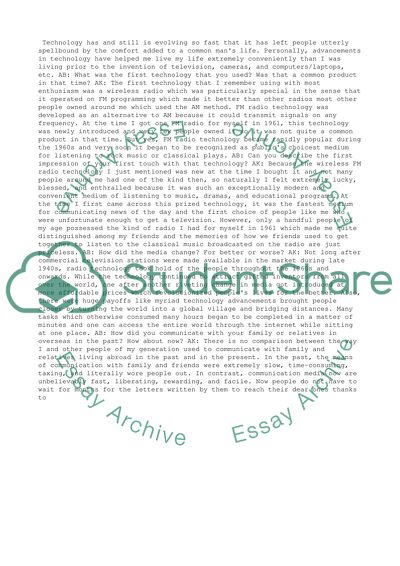Cite this document
(“The changes in media and uses of media in their lifetime and the Essay”, n.d.)
Retrieved from https://studentshare.org/business/1404471-describe-the-changes-in-media-and-uses-of-media-in
Retrieved from https://studentshare.org/business/1404471-describe-the-changes-in-media-and-uses-of-media-in
(The Changes in Media and Uses of Media in Their Lifetime and the Essay)
https://studentshare.org/business/1404471-describe-the-changes-in-media-and-uses-of-media-in.
https://studentshare.org/business/1404471-describe-the-changes-in-media-and-uses-of-media-in.
“The Changes in Media and Uses of Media in Their Lifetime and the Essay”, n.d. https://studentshare.org/business/1404471-describe-the-changes-in-media-and-uses-of-media-in.


